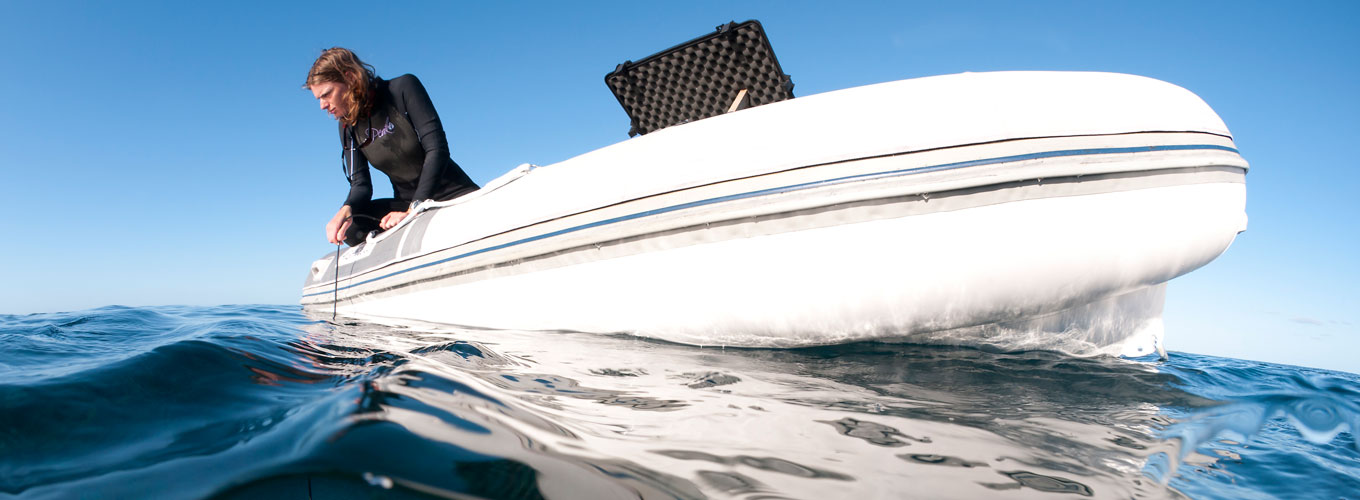Coral reef crusader
Dr Sarah Hamylton’s interest in coral reefs is spurred on by her extensive experience in the conservation of marine ecosystems.
Hamylton has worked on management issues such as marine pollution, deforestation of mangroves and the establishment of marine protected areas, collecting and using information (particularly in the form of digital maps) to aid management decision-making in coastal environments.
Early in her career, she balanced roles in conservation organisations, including at the United Nations, with her PhD studies (completed in 2010) at the University of Cambridge. Since arriving in Australia and at UOW, Hamylton has continued field research on remote coral reefs, such as Cocos Atoll, an Australian territory in the Indian Ocean, and the Great Barrier Reef.
Hamylton’s research focuses on developing models to better explain and predict characteristics of tropical coastal environments (e.g. habitats and landforms). This takes a broad international focus, including projects in Fiji, the Seychelles and Red Sea.
On dry land, Hamylton has developed both introductory and advanced courses in Geographical Information Science to pass on her spatial analysis to undergraduates. She takes learning outside of the lecture theatre, immersing students in the world of coral reefs, satellite images and underwater fieldwork.
Hamylton has written several books and a considerable list of articles for prestigious journal on the subject of spatial analysis in coastal environments. This has been achieved while balancing her research with her growing family.
“I love science. To do the sort of structured enquiry that addresses contemporary coastal research challenges, it is necessary to find data for analysis that is both creative and critical. This might involve scuba diving, making digital maps from satellite images or developing spatial models to express my understanding of coastal phenomena. All of this makes for an exciting career that never gets boring.”
Copyright © 2016 University of Wollongong. CRICOS Provider No: 00102E Privacy | Disclaimer & Copyright Info | Site Map

